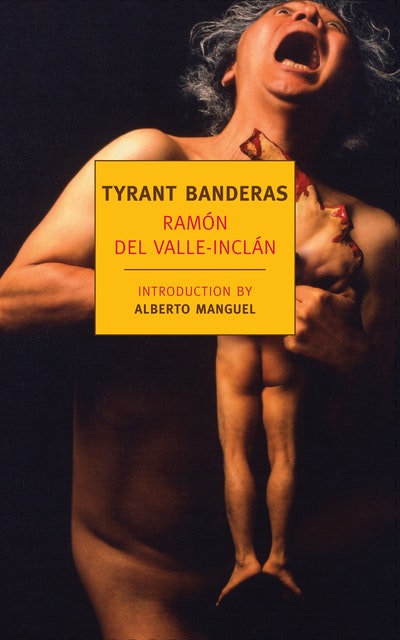- Published: 15 May 2012
- ISBN: 9781590174982
- Imprint: NY Review Books
- Format: Paperback
- Pages: 224
- RRP: $37.99
Tyrant Banderas
Buy from…
- Published: 15 May 2012
- ISBN: 9781590174982
- Imprint: NY Review Books
- Format: Paperback
- Pages: 224
- RRP: $37.99
"Ramón del Valle-Inclán, the most pioneering Spanish dramatist of this century . . . anticipates most of the key movements in modern drama. He is notoriously unclassifiable but was both and Expressionist and an Absurdist before the event. He created a genre he called 'esperpento' which broadly means grotesque tragic-comedy, and what is fascinating is that he anticipates Beckett, Ionesco, Genet and Arrabal without in any way sacrificing his own radical utopianism. He is one of the seminal figures in modern drama: erotic, anarchic and Galician poet of the grotesque." --Michael Billington, Guardian "Because dictators have been a staple of Latin history, they're a staple of the Latin novel. Spaniard Ramon del Valle-Inclan broke ground in 1926 with Tirano Banderas." --The Miami Herald "The radical innovation in the theater that came after World War I is known here mainly through the plays of Brecht. In Spain, the prophet of this new movement was Ramón del Valle-Inclán. . . . Written in 1920, 'Divinas Palabras' actually precedes Brecht's agitprop dramas." --The New York Times "It is a dark, violent, gorey work whose unbridled lyricism cannot mask its many horrors. . . . Tirano Banderas, which Valle Inclan wrote in his 20s, is Cubist in that its writing is highly fragmented, while its range of deep, intense colours is reminiscent of Goya. But its main characteristic is esperpento, a genre created by Ville-Inclan himself. Esperpento is a mixture of terror and comedy, in which a character from tragedy is reduced to the dimensions of a fairground huckster. Tirano Banderas is a farce written with a poisoned pen." --Manchester Guardian Weekly
